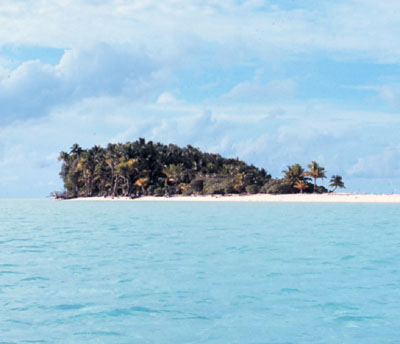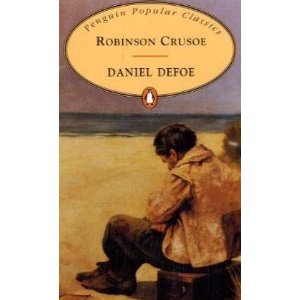As our guest blogger Simon reads Robinson Crusoe for the first time, he draws some interesting parallels to expat life…
Imagine how Robinson Crusoe felt when he woke up to his first full day marooned on a desert island.  Everything is uncertain, you are huddled in the mist of your few most treasured possessions and you have to face making a new life for yourself almost entirely from scratch. Perhaps not too different from the feeling many of us will have had landing for the first time in a new destination and having to face the prospect of a totally new beginning on our own. It’s a scary place to be and the tasks ahead seem almost impossible, yet it’s also a moment full of opportunity and excitement.
Everything is uncertain, you are huddled in the mist of your few most treasured possessions and you have to face making a new life for yourself almost entirely from scratch. Perhaps not too different from the feeling many of us will have had landing for the first time in a new destination and having to face the prospect of a totally new beginning on our own. It’s a scary place to be and the tasks ahead seem almost impossible, yet it’s also a moment full of opportunity and excitement.
I read Robinson Crusoe over the Christmas holidays for the first time and it made me think much on my expat life. Like Robinson Crusoe and like most of us expats, I was compelled to increased industriousness upon first arrival. I had a flat to find and furnish, a whole new town to navigate, and much much more that demanded my immediate attention. The excitement of newness made this extra energy easy to find, and I threw myself into everything, racing around on my bicycle buying things and joining clubs.
After the first few months, I relaxed a bit, but not so Crusoe. His industriousness continued for years and years as he worked to improve his new home and make the island as comfortable and secure a place for himself as possible. His calm, continuous endeavour is the main fascination of the book which describes his activities in great detail and yet is never dull.
 Like almost all expats when they first arrive, Robinson Crusoe was cut off from his previous community, or indeed of any company. This freed him from competition, envy or distraction; there was nothing to focus on but his own endeavour and he set about a series of ambitious long term projects to make his island more habitable. He comes to know that he can achieve whatever it is he sets his mind to – within reason – with the application of thought, repetitive effort and time. The focus of his obsessions shift from one project to the next, but his dedication to continuous industry is constant.
Like almost all expats when they first arrive, Robinson Crusoe was cut off from his previous community, or indeed of any company. This freed him from competition, envy or distraction; there was nothing to focus on but his own endeavour and he set about a series of ambitious long term projects to make his island more habitable. He comes to know that he can achieve whatever it is he sets his mind to – within reason – with the application of thought, repetitive effort and time. The focus of his obsessions shift from one project to the next, but his dedication to continuous industry is constant.
I think this increased industriousness is also visible in most expats, who often share Crusoe’s feelings of heightened self-reliance and ambition upon landing on foreign shores. Something about the otherness of a new posting, the sense of fresh start, being alone in a new habitat, all contrive to push the expat to work harder and do more.
Even with no company at all, Crusoe manages to stay sane and positive in his island retreat and, as his story progresses, finds a contentedness of sorts in isolation.  He enjoys being master of all he surveys and gets used to his own company. When he eventually does get human company he manages to do it all on his own terms and emerges from his isolation beholden to no-one and in control of his island and fate. It may be the side of the book that tends to get most criticised, but isn’t there a little bit of conquering hero inside many an expat’s imagination? The desire not just to assimilate, but also to assert your own identity over your new home.
He enjoys being master of all he surveys and gets used to his own company. When he eventually does get human company he manages to do it all on his own terms and emerges from his isolation beholden to no-one and in control of his island and fate. It may be the side of the book that tends to get most criticised, but isn’t there a little bit of conquering hero inside many an expat’s imagination? The desire not just to assimilate, but also to assert your own identity over your new home.
Of further interest to the expat reader is Crusoe’s relationship with home which seems continually guilt ridden and troubled. Ring any bells? His ‘original sin’ that constantly haunts him is leaving his comfortable Norfolk home, against the wishes of his parents, for a life of adventure on the sea. It is this for which he imagines he is paying penance on his island. Perhaps also true of many an expat, his homecoming, when it finally arrives, is not easy. Much of what is familiar is gone and his itchy feet are soon luring him back towards the high seas.
Daniel Defoe first published Robinson Crusoe in 1719, yet it feels a much more modern read than this date suggests. The themes are eternal and the way in which Crusoe ponders his fate is very much the monologue of a modern man. It endures for today’s reader as a powerful portrayal of the human condition and a triumphant celebration of the power of human endeavour. If you’re setting out on a new adventure on your own or mulling over your fate as an expat, I can think of no more useful or enjoyable read. (or re-read!).
Thank you Simon Goodall for your contribution to the InterNations blog.
Painting of Robinson Crusoe by Alexander Frank Lydon (1826-1917)
wonderfull comparision; from years and years i compared my life with Robinsons situation. in Similar way i changed places from last 5-6 years i am living expat life changing couple of countries.
till date i was not able to put the comparison in words and today with your write up i feel this is what i was thinking all the years.
Wow, Simon will be delighted that his post resonated so much with you. 🙂
Whimsical analogy…nice.
This post really made me think. Robinson Crusoe was my favorite childhood book. I can still see the blue cover and I read it over and over. I recently thought I should reread it to see why I liked it so much, but your post gives me an idea. Did I somehow know at age 9 that I would need to go off like him in some sort of way. Very interesting.
Simon – wonderful thoughts on Robinson – after the “Marooned” speech on Robinson, I enjoyed how you gave your insights just that little extra spin to make it all the more relevant for us expats
@Bob and Martin:
I, too, read Robinson Crusoe way back when (probably in English class), but just like you two I found Simon’s fresh perspective very interesting!
I had never thought of this parallel, but your views are so true.
Brilliant reading!
Thanks for the great article. I had never read the book, but I love the way you make it relevant to the experience of living abroad.
Bob W.
http://bobweisenberg.wordpress.com/